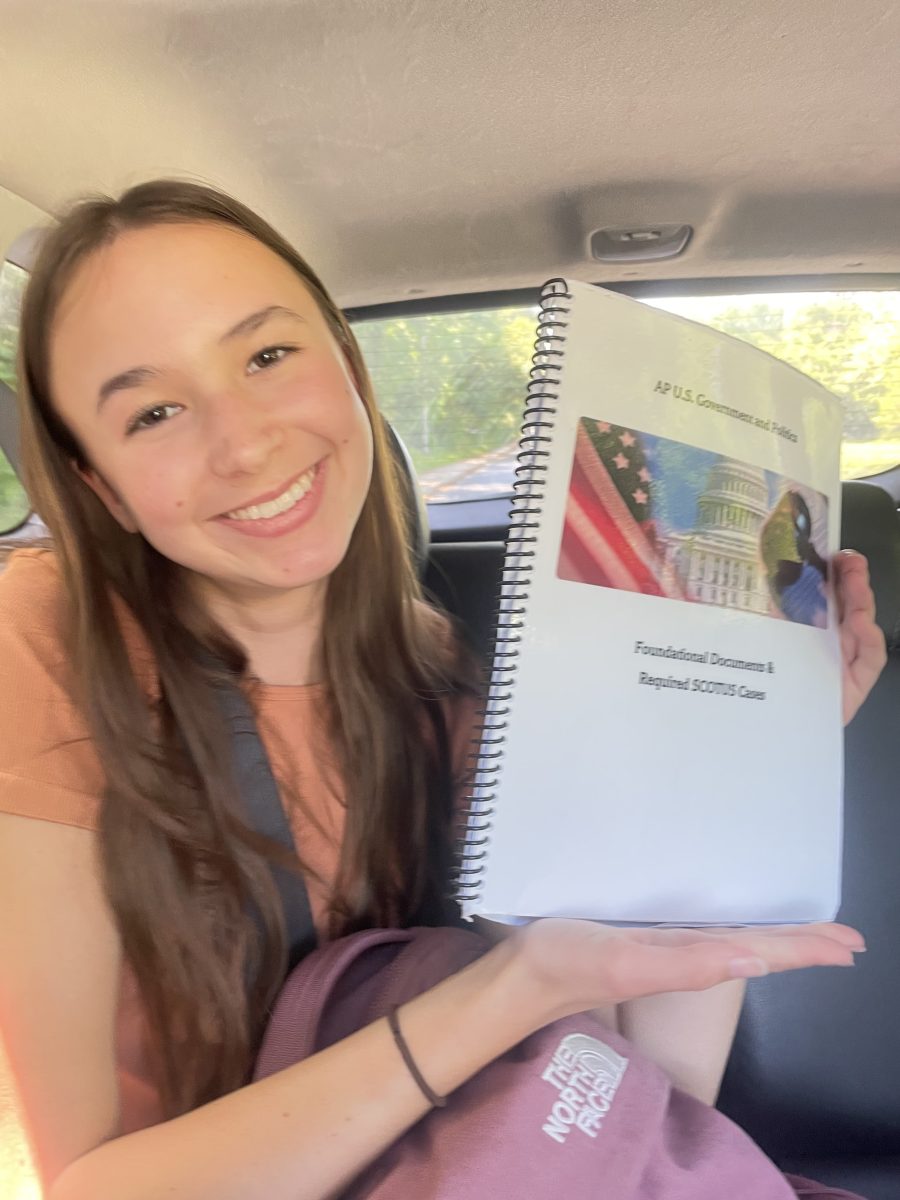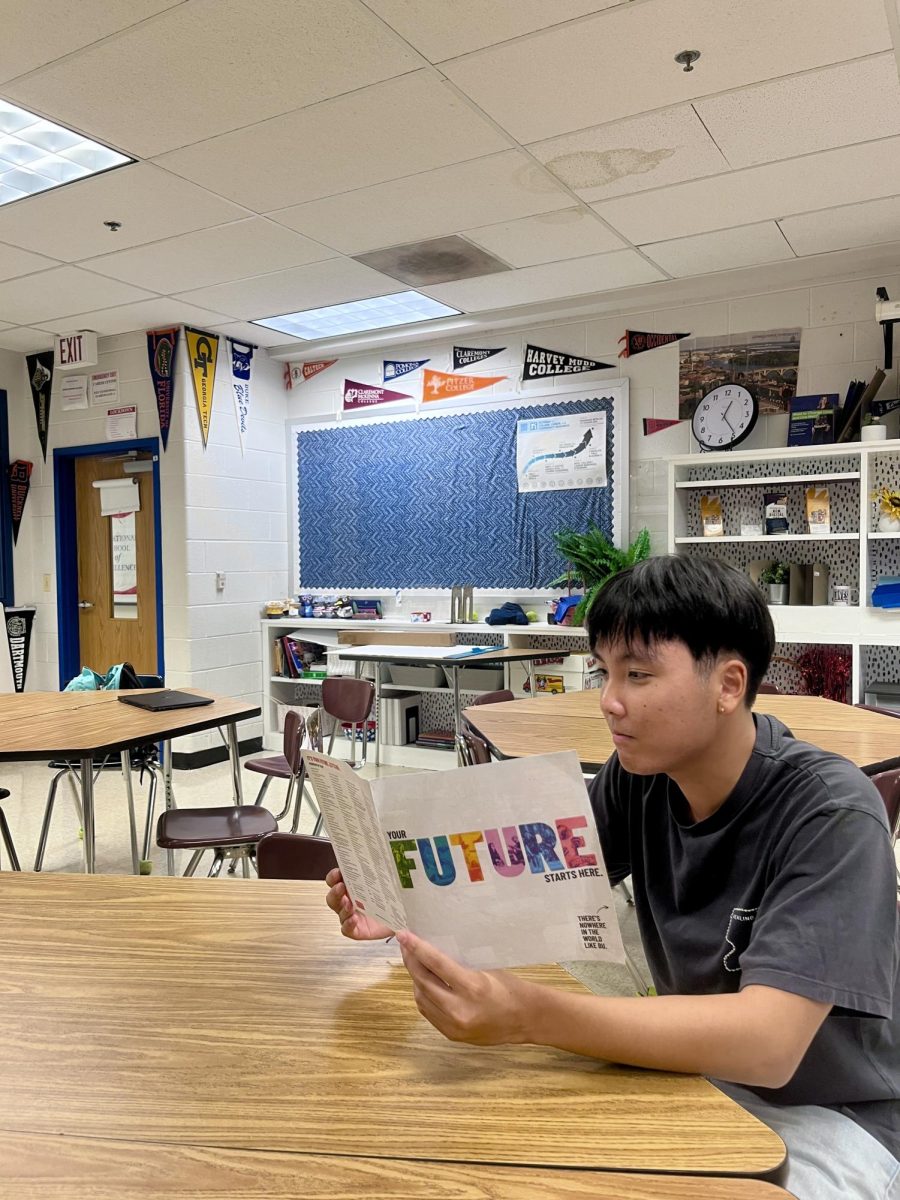As AP season approaches hastily, students trudge forward, anxiously awaiting exams and navigating the studying process.
This year’s exams kick-off on May 6 with AP Government and run till May 23 with AP Language and Composition. This is the first year the exams are free to all students as long as you have taken the class and they will be administered at this school.
Students are eager for the exams to be over due to lurking anticipation, rigorous material, and the amount of time spent studying. To prepare for AP Government and AP Human Geography, “I’ve been reading my Princeton Review books and have been making a lot of flashcards. I’ve also done some practice questions and FRQs,” sophomore Ava Eisenman said.
Students use AP preparation books to study content for exams like Barons, Princeton Review and 5 Steps to a 5. The purpose of these books is to provide integral details and practice questions, and assist students in determining which topics they need more practice on. “I like to go through each chapter, highlighting topics I need to review. For AP US History, when I take notes, I usually use a color coding system where each highlighter color represents a different topic (like people, dates, places),” sophomore Victoria Olanrewaju said.
Freshman Hannah Chen is taking AP Government and AP Computer Science Principles and is making it a priority not to cram information superfluously and instead utilize review books and videos on Youtube. “The hardest part of studying is not the material: Iit’s] the accumulative process and stress is the worst for me. I feel like throughout the whole school year, everything has been preparing us for this exam. So now, I feel like I have to prove that I understood everything I learned. I personally think the easiest part of preparing for the exam is just planning out what days you are studying and what, to make sure you relearn everything for when the day comes,” Chen said.
Popular studying strategies include spaced repetition following the idea of active recall, but doing so in specific increments of time. The four-step Feynman technique starts with choosing a concept, teaching the content in a broken-down manner to someone else, reviewing details, and simplifying the thinking process. Mind maps can also be productive by depicting connections between topics visually. Students are also drawn to online resources such as Khan Academy and find watching videos breaking down course concepts to be effective, for example, Organic Chemistry Tutor and Heimer’s History.
Beginning studying can be the most challenging part, but finding quiet study spaces such as the library and listening to brown noise can be effective. “For me, the hardest part of prepping for APs is probably getting into ‘the zone.’ It can take a lot for me to get into a state of serious focus, but once I’m there I can work for a long time,” Olanrewaju said.
Junior Jenna Goldberg is studying for AP English Language and Composition and participating in activities in the teacher-led “boot camp” intended to assist students in preparing for the exam. “The process has been very manageable since the teachers are breaking up the studying into chunks, which definitely helps,” Goldberg said.
Prior to the exam, it is paramount to get adequate rest and be equipped to complete the exam to the best of your ability. “It’s often hard for me not to stress over things, but I know all I can do at this point is try my best,” Olanrewaju said.







![Editors-in-Chief Ahmed Ibrahim, Helen Manolis, Cameron Cowen, Alex Grainger, Emory Scofield, Hayley Gottesman, Rebekah Buchman and Marley Hoffman create the first print magazine of the year during the October press days. “Only a quarter of the schools in MCPS have programs that are like ours, a thriving, robust program. That makes me really sad. This is not just good for [the student journalists] to be doing this, it’s good for the entire community. What [student journalists] provide to the community is a faith in journalism and that continues for their lifetimes," Starr said.](https://woottoncommonsense.com/wp-content/uploads/2025/10/wmpoFTZkCPiVA3YXA4tnGoSsZ4KmnKYBIfr18p3l-900x1200.jpg)

